Buhari was born to a Muslim family on 17 December 1942, in Daura, Katsina State, Nigeria. He was the twenty third child of Mallam Hardo Adamu, a Fula chieftain originally from Dumurkul in Mai’Adua and Zulaihat. He was named after ninth-century Islamic scholar Muhammad al-Bukhari. Buhari’s great-grandfather, Yusuf, was a businessman. Buhari was four years old When his father died, and Waziri Alhassan, the son of the Emir, Musa dan Nuhu (reigned: 1904–1911), became the guardian of Zulaihat and her six children, including Buhari.
Buhari attended Qur’anic school, where he helped in rearing cattle. He had his primary education in Daura and Mai’Adua, and graduated in 1953. He was admitted into Katsina Middle School (later renamed to Katsina Provincial Secondary School), where he had his secondary education from 1956 to 1961. During his sixth form, he served as the house captain and headboy of the school. In 1960, he was awarded scholarship by the Elder Dempster Lines for a summer visit to the United Kingdom.
Buhari wanted to pursue a medical degree to become a doctor, however, the only option at the time was to study Pharmacology at the Nigerian College of Arts, Science, and Technology in Zaria, which would take him many years. He was advised by Mamman Daura to join the Nigerian military and pursue higher education there. Inspired by the then junior officer Hassan Katsina, who took young boys in Katsina State, including Buhari, on night hikes, where they camped under the stars.
Military career
In 1962, at the age of 19, Buhari was one of 70 boys selected for recruitment into the Nigerian Military Training College (NMTC).] In February 1964, NMTC was upgraded to an officer commissioning unit of the Nigerian Army and was renamed Nigerian Defence Academy. From 1962 to 1963, Buhari underwent officer cadet training at Mons Officer Cadet School in Aldershot, England. In January 1963, at the age of 20, he was commissioned a second lieutenant and appointed Platoon Commander of the Second Infantry Battalion in Abeokuta, Nigeria, and attended the Platoon Commanders’ Course at the Nigerian Military Training College, Kaduna, Kaduna State, from November 1963 to January 1964. In 1964, he further moved to the Mechanical Transport Officer’s Course at the Army Mechanical Transport School in Borden, United Kingdom.]
From 1965 to 1967, Buhari served as commander of the Second Infantry Battalion and was appointed brigade major of the Second Sector, First Infantry Division (April 1967 to July 1967). Following the 1966 Nigerian coup d’état that killed the Premier of Northern Nigeria Ahmadu Bello, Buhari, alongside other officers from Northern Nigeria, took part in the July counter-coup which ousted General Aguiyi Ironsi, replacing him with General Yakubu Gowon.
Nigerian Civil war
During the civil war, Buhari was assigned to the 1st Division under the command of Lieutenant Colonel Mohammed Shuwa. The division had temporarily moved from Kaduna to Makurdi at the onset of the Nigerian Civil War. The 1st division was divided into sectors and battalions, with Shuwa assisted by sector commanders Martin Adamu and Sule Apollo, who was later replaced by Theophilus Danjuma. He first served as the Adjutant and Company Commander 2 battalion unit, Second Sector Infantry of the 1st Division. The 2 battalion was one of the units that participated in the first actions of the war: they started from Gakem near Afikpo and moved towards Ogoja, with support from Gado Nasko’s artillery squad. They reached and captured Ogoja, with the intention of advancing through the flanks to Enugu, the capital city.
He was briefly the 2 battalion’s Commander and led the battalion to Afikpo to merge with the 3rd Marine Commando and advance towards Enugu through Nkalagu and Abakaliki. However, before the move to Enugu, he was posted to Nsukka as Brigade Major of the 3rd Infantry Brigade under Joshua Gin, who was later replaced by Isa Bukar.
In the 1975 military coup d’état, Lieutenant Colonel Buhari was among a group of officers that brought General Murtala Mohammed to power. He was later appointed Governor of the North-Eastern State from 1 August 1975 to 3 February 1976, to oversee social, economic and political improvements in the state. On 3 February 1976, the North Eastern State was divided into three states Bauchi, Borno and Gongola. Buhari then became the first Governor of Borno State from 3 February 1976 to 15 March 1976.
In March 1976, following the botched 1976 military coup d’état attempt which led to the assassination of General Murtala Mohammed, his deputy General Olusegun Obasanjo became the military head of state and appointed Colonel Buhari as the Federal Commissioner for Petroleum and Natural Resources (now minister). In 1977, when the Nigerian National Petroleum Corporation was created, Buhari was appointed as its chairman, a position he held until 1978.
During his tenure as the Federal Commissioner for Petroleum and Natural Resources, the government invested in pipelines and petroleum storage infrastructures. The government built about 21 petroleum storage depots all over the country from Lagos to Maiduguri and from Calabar to Gusau; the administration constructed a pipeline network that connected Bonny terminal and the Port Harcourt refinery to the depots. Also, the administration signed the contract for the construction of a refinery in Kaduna and an oil pipeline that will connect the Escravos oil terminal to Warri Refinery and the proposed Kaduna refinery.
Coup d’état of 1983
Major-General Buhari was one of the leaders of the military coup of December 1983 that overthrew the Second Nigerian Republic. At the time of the coup plot, Buhari was the General Officer Commanding (GOC), Third Armoured Division of Jos. With the successful execution of the coup by General Buhari, Tunde Idiagbon was appointed Chief of General Staff (the de facto No. 2 in the administration). The coup ended Nigeria’s short-lived Second Republic, a period of multi-party democracy revived in 1979, after 13 years of military rule.
According to The New York Times, the officers who took power argued that “a flawed democracy was worse than no democracy at all”. Buhari justified the military’s seizure of power by castigating the civilian government as hopelessly corrupt and promptly suspended the constitution. Another rationale for the coup was to correct economic decline in Nigeria. In the military’s first broadcast after the coup, Sani Abacha linked ‘an inept and corrupt leadership’] with general economic decline. In Buhari’s New Year’s Day speech, he too mentioned the corrupt class of the Second Republic but also as the cause of a general decline in morality in society.
In 1984, Buhari passed Decree Number 4, the Protection Against False Accusations Decree, a wide-ranging repressive press law. Section 1 of the law provided that “Any person who publishes in any form, whether written or otherwise, any message, rumour, report or statement […] which is false in any material particular or which brings or is calculated to bring the Federal Military Government or the Government of a state or public officer to ridicule or disrepute, shall be guilty of an offense under this Decree”. The law further stated that offending journalists and publishers will be tried by an open military tribunal, whose ruling would be final and unappealable in any court and those found guilty would be eligible for a fine not less than 10,000 naira and a jail sentence of up to two years.
In order to reform the economy, as Head of State, Buhari started to rebuild the nation’s social-political and economic systems, along the realities of Nigeria’s austere economic conditions. The rebuilding included removing or cutting back the excesses in national expenditure, obliterating or removing completely, corruption from the nation’s social ethics, shifting from mainly public sector employment to self-employment. Buhari also encouraged import substitution industrialisation based to a great extent on the use of local materials. However, tightening of imports led to reduction in raw materials for industries causing many industries to operate below capacity, reduction of workers and in some cases business closure.
In August 1985, Major General Buhari was overthrown in a coup led by Major General Ibrahim Babangida and other members of the ruling Supreme Military Council (SMC). Babangida brought many of Buhari’s most vocal critics into his administration, including Fela Kuti’s brother Olikoye Ransome-Kuti, a doctor who had led a strike against Buhari to protest declining health care services. Buhari was then detained in Benin City until 1988.
Detention
Buhari spent three years of detention in a small guarded bungalow in Benin. He had access to television that showed two channels and members of his family were allowed to visit him on the authorization of Babangida.
In December 1988, after his mother’s death he was released and retired to his residence in Daura. While in detention, his farm was managed by his relatives. He divorced his first wife in 1988 and married Aisha Halilu.] In Katsina, he became the pioneer chairman of Katsina Foundation that was founded to encourage social and economic development in Katsina State.
Buhari served as the Chairman of the Petroleum Trust Fund (PTF), a body created by the government of General Sani Abacha, and funded from the revenue generated by the increase in price of petroleum products, to pursue developmental projects around the country. A 1998 report in New African praised the PTF under Buhari for its transparency, calling it a rare “success story”.
Presidential campaigns and elections
2003 presidential election
In 2003, Buhari ran for the office of the president as the candidate of the All Nigeria People’s Party (ANPP). He was defeated by the People’s Democratic Party incumbent, President Olusẹgun Ọbasanjọ, by more than 11 million votes.
On 18 December 2006, Buhari was nominated as the consensus candidate of the All Nigeria People’s Party. His main challenger in the April 2007 polls was the ruling PDP candidate, Umaru Yar’Adua, who hailed from the same home state of Katsina. Buhari officially took 18% of the vote to Yar’Adua’s 70%, but Buhari rejected these results. After Yar’Adua took office, he called for a government of national unity to bring on board aggrieved opposition members. The ANPP joined the government with appointment of its national chairman as a member of Yar’Adua’s cabinet, but Buhari denounced this agreement.
In March 2010, Buhari left the ANPP for the Congress for Progressive Change (CPC), a party he had helped to found. He said that he had supported foundation of the CPC “as a solution to the debilitating, ethical and ideological conflicts in my former party the ANPP”
Buhari was the CPC presidential candidate in the 2011 election, running against incumbent President Goodluck Jonathan of the People’s Democratic Party (PDP), Mallam Nuhu Ribadu of Action Congress of Nigeria (ACN), and Ibrahim Shekarau of ANPP. They were the major contenders among 20 candidates Buhari campaigned on an anti-corruption platform and pledged to remove immunity protections from government officials. He also gave support to enforcement of Sharia law in Nigeria’s northern states, which had previously caused him political difficulties among Christian voters in the country’s south.
The elections were marred by widespread sectarian violence, which claimed the lives of 800 people across the country, as Buhari’s supporters attacked Christian settlements in the country’s central region. The three-day uprising was blamed in part on Buhari’s inflammatory comments. In spite of assurances from Human Rights Watch, which had judged the elections “among the fairest in Nigeria’s history”, Buhari claimed that the vote was flawed and warned that “If what happened in 2011 should again happen in 2015, by the grace of God, the dog and the baboon would all be soaked in blood”.
Buhari remained a “folk hero” to some for his vocal opposition to corruption. He won 12,214,853 votes, coming in second to Jonathan, who polled 22,495,187 votes and was declared the winner.
2015 presidential election
Buhari ran in the 2015 presidential election as a candidate of the All Progressives Congress party. His platform was built around his image as a staunch anti-corruption fighter and his incorruptible and honest reputation, but he said he would not probe past corrupt leaders and would give officials who stole in the past amnesty if they repented.
In the runup to the 2015 election, Jonathan’s campaign asked that Buhari be disqualified from the election, claiming that he was in breach of the Constitution. According to the fundamental document, in order to qualify for election to the office of the president, a person must be “educated up to at least School certificate level or its equivalent”. Buhari failed to submit any such evidence, claiming that he lost the original copies of his diplomas when his house was raided following his overthrow from power in 1985.
In February 2015, former Nigerian President Olusegun Obasanjo quit the ruling PDP party and endorsed Buhari.
On 31 March, Jonathan called Buhari to concede and congratulate him on his election as president. Buhari was sworn in on 29 May 2015 in a ceremony attended by at least 23 heads of state and government.
Second inauguration
The second inauguration of Buhari as the 15th president of Nigeria, and 4th president in the fourth Nigerian Republic took place on Wednesday, 29 May 2019, following the 2019 Nigerian presidential election and marking the start of the second and final four-year term of Muhammadu Buhari as president and Yemi Osinbajo as vice president. It was the 8th presidential inauguration in Nigeria, and 6th in the fourth republic.
The official swearing-in ceremony took place at Eagle Square in Abuja, the Federal Capital Territory. Acting Chief Justice Tanko Muhammad administered the oath of office taken by President Buhari and Vice President Yemi Osinbajo. The traditional inaugural speech was not delivered. Former Nigerian heads of state General Yakubu Gowon, General Ibrahim Babangida, Interim President Ernest Shonekan, General Abdulsalami Abubakar, General Olusegun Obasanjo and President Goodluck Jonathan were in attendance.
Presidency (2015–2023)
The economy has averaged a growth rate of 0.9% since the administration’s first term, unemployment is at an all-time high of 23%, and millions entered poverty. Since 2015, Buhari has lost supporters due to his perceived un-energetic personality and contemplative decision making.
Economy
Buhari was an attractive choice to many Nigerians because of a perceived incorruptible character. Once in power, Buhari who had earlier mobilized supporters in three previous elections was slow to manifest his intention to solve problems he mentioned during his campaign. Determination to initiate his domestic policy agenda like naming of cabinet officials took six months, while the passage of the 2016 and 2017 budgets were delayed by infighting.
In Buhari’s first year in office, Nigeria suffered a decline in commodity prices which triggered an economic recession. To source funds to close shortfall in revenue and fund an expansionary capital budget, Buhari traveled to 20 countries seeking loans. Thereby, expansionary budget allocation to finance infrastructure was pushed back to a further date.
Also Read
In the first year of the administration, the currency of Nigeria depreciated in the black market leading to a gulf between the official exchange rate and the black-market rate. A resulting shortage in foreign exchange hit various businesses including petroleum marketers. However, the gulf between the official rates and the black market rates opened up the opportunity for well connected individuals to engage in arbitrage, making a mockery of the president’s anti-corruption image. In May 2016, the government announced a rise in the official pump price of petroleum to curtail shortfall in the commodity as a result of foreign exchange shortages.
In 2016, the country’s economy declined by 1.6% and in 2017 per capita economic growth is projected to be negligible. Buhari’s first tenure as head of state coincided with a decline in oil prices similar to his second stint but his administration has not shown dedicated effort to diversify sources of government spending.[The 2018 budget signaled an expansionary fiscal policy with funds dedicated to infrastructural projects such as strategic roads, bridges and power plants.Since an upturn in economic growth from the decline of 2016, a slow pace of recovery has the country behind many of its continental neighbors in GDP growth. Unemployment levels remain high and any effort to increase non-oil revenues has not improved while government deficit spending include a significant portion of its yearly budget dedicated to service debts.
Buhari with the support of the Central Bank chief initiated policies to improve agriculture production through lobbying private banks to lend to the sector and restriction of foreign exchange at official rates for importation of food product that are grown locally. In his second term, the budget minister, Udo Udoma and trade minister, Enemalah both of whom favored liberalisation were not returned.
The government continued to operate flexible exchange rates into the second term of the administration despite critics alluding to the exchange rate regime of being susceptible to arbitrage abuses and round tripping by cronies of the government.
Post Views: 1








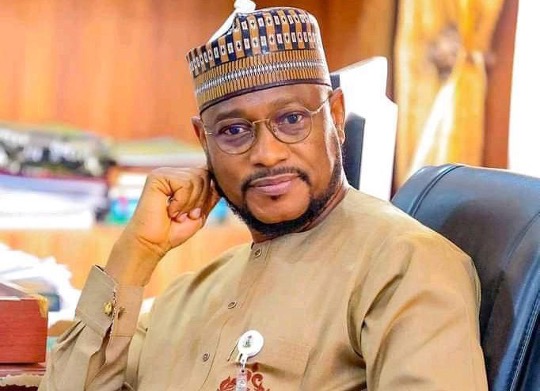
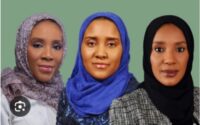

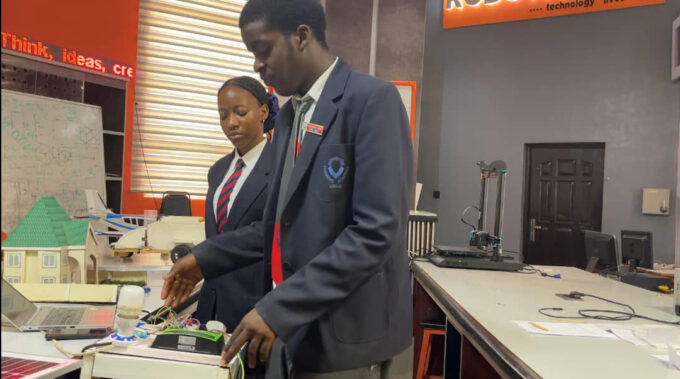

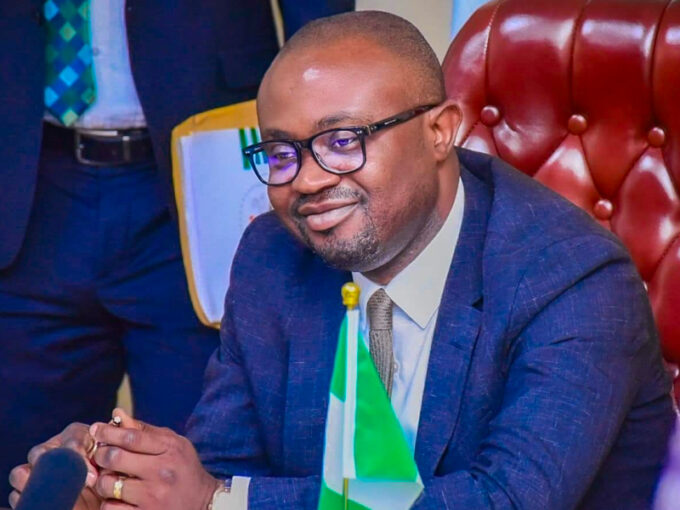


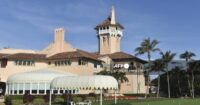
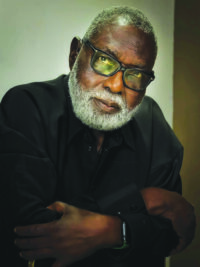
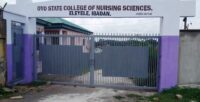
Leave a comment